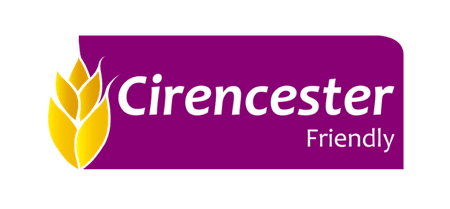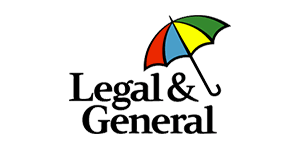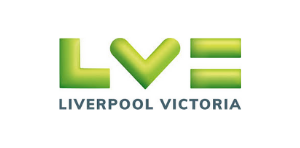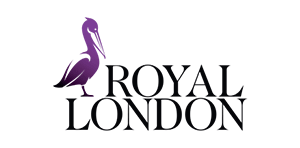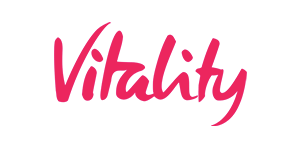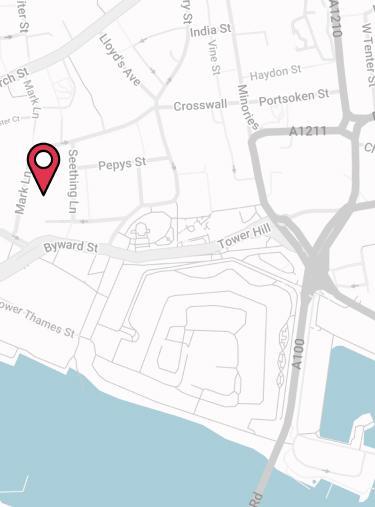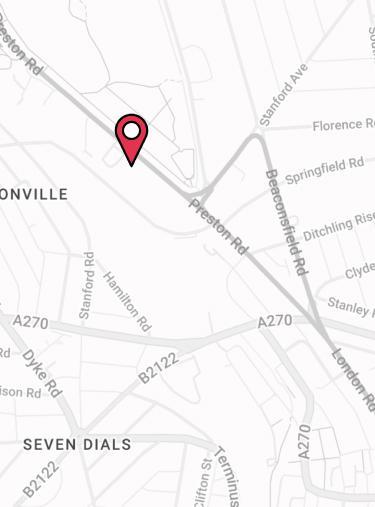IMPORTANT❗️
Our “best” insurer lists reflect our independent analysis of product features, service quality, and value. They are intended as a guide only – the right provider for you may differ depending on your needs and circumstances.
When considering Income Protection Insurance, it makes sense to look for the best possible policy your money can buy. But this can be hard to pinpoint since the best policy for you depends on your unique circumstances and requirements.
Not all policies are equal, and some will align more closely with your own specific needs and circumstances. With this in mind, it’s important to understand how they differ and what key factors to consider before taking out cover.
Which Income Protection Insurance Is Best In 2026?
The UK has a few major providers to choose from, each with their own unique policy types, pricing structure, and underwriting process.
There’s no one-size-fits-all when it comes to insurance. The “best” product for you won’t necessarily be the best for someone else, as it all depends on your unique situation. That’s why it’s important to compare quotes and policies from different providers. And the cheapest quote isn’t always the best.
Our list of “top” insurers has been put together by considering product offering, company size, longevity, and customer reviews.
GOOD TO KNOW 🤓
As an FCA-authorised firm, you can trust Drewberry to guide you with integrity and knowledge. You can find us on the Financial Services Register.
Aviva
![Aviva Health Insurance Provider Logo]()
Aviva is one of the UK’s largest insurers, serving more than 20 million customers across the nation. They recently acquired AIG Life UK (now Aviva Protection UK) to strengthen their personal protection offering.
- Claims payout rate: 97.1% in 2024
- Defaqto rating: 5⭐
- Income covered: 65% of the first £60,000, 45% of everything after (max £240,000 a year)
- Additional benefits: Aviva DigiCare+: Annual health checks, Bupa 24/7 helpline, mental health support, personal nutritionists, bereavement and legal support.
Pros And Cons Of Aviva Income Protection
What Aviva Customers Say
As of November 2025, Aviva has Aviva currently has over 52,000 reviews on Trustpilot (73% of them giving 5⭐), giving them an average “Excellent” score of 4.3/5 stars. Note that this is for the company as a whole, rather than just the protection division.
Read our specialist review of Aviva Income Protection, or get a quote online in 60 seconds.
British Friendly
![]()
Founded in 1902 to provide sickness benefits for commercial travellers, British Friendly is a UK mutual society (friendly society) – meaning it doesn’t have shareholders and operates for the benefit of its members.
- Claims payout rate: 86% in 2024
- Defaqto rating: 5⭐
- Income covered: 65% of the first £60,000, 45% of everything after (max £57,000 a year)
- Additional benefits: Mutual Benefits: Additional financial support in life-changing events, unlimited digital GP Consultations, physiotherapy sessions, mental health support, second medical opinion, discounted annual health check.
Pros And Cons Of British Friendly Income Protection
What British Friendly Customers Say
As member-focused provider, British Friendly is a good option for those in manual or higher-risk occupations who are looking to protect their ability to pay the mortgage. As of October 2025, British Friendly has almost 300 reviews on Trustpilot (70% of them giving 5⭐), giving them an average “Average” score of 3.4/5 stars.
Read our specialist review of British Friendly Income Protection, or get a quote online in 60 seconds.
Cirencester Friendly
![]()
Cirencester Friendly is a UK mutual society specialising in Income Protection Insurance for employed and self‑employed individuals. Their main products include “My Earnings Protected” and “Income Assured Enhanced”, designed to help you replace part of your earnings if you’re unable to work due to illness or injury.
- Claims payout rate: 95.8% of claims paid in 2024
- Defaqto rating: 5⭐
- Income covered: 65% of maximum £80,000 yearly income
- Additional benefits: Member Benefits: 24/7 virtual GP, children’s Critical Illness support, personal nurse helpline, financial support from the 125 Foundation, perks and discounts from popular brands.
Pros And Cons Of Cirencester Friendly Income Protection
What Cirencester Friendly Customers Say
Cirencester Friendly doesn’t currently have a Trustpilot review page, making it hard for potential policyholders to find genuine insights. However, they’ve won multiple awards in 2025, including Best Financial Protection Provider at the What Mortgage Awards, and Best Protection Service at the Moneyfacts Awards.
Read our specialist review of Cirencester Friendly Income Protection, or get a quote online in 60 seconds.
The Exeter
![]()
The Exeter is a specialist UK mutual insurer, focusing on Health, Life, and Income Protection products designed to support working professionals and the self-employed. As a member-owned organisation, The Exeter reinvests profits into improving cover options and customer service rather than paying dividends to shareholders.
- Claims payout rate: 93% in 2024
- Defaqto rating: 5⭐
- Income covered: 60% of the first £100,000, 40% of everything after
- Additional benefits: HealthWise: Digital GP, second medical opinion, mental health support, nutrition and lifestyle advice, physiotherapy, annual health MOT.
Pros And Cons Of The Exeter Income Protection
What The Exeter Customers Say
As of October 2025, The Exeter currently has over 1,000 reviews on Trustpilot (72% of them giving 5⭐), giving them an average “Great” score of 3.9/5 stars.
Read our specialist review of The Exeter Income Protection, or get a quote online in 60 seconds.
Holloway Friendly
![]()
Holloway Friendly is a mutual society focused on Income Protection (sickness cover) rather than being a broad financial-services conglomerate. Its roots stretch back to the 19th century, and it claims credit for pioneering income protection in 1875. Their offering centres on “My Sick Pay” policies (plus variations like “Classic Plus”) that allow members to insure a portion of their income if illness or injury prevents them working.
- Claims payout rate: 88.3% in 2024
- Defaqto rating: 5⭐
- Income covered: Up to 60% of gross taxable income
- Additional benefits: Heath Hero: 24/7 Virtual GP, advice and counselling service.
Pros and Cons of Holloway Friendly Income Protection
What Holloway Friendly Customers Say
As of October 2025, Holloway Friendly has just over 150 reviews on Trustpilot (78% of them giving 5⭐), giving them an average “Great” score of 3.9/5 stars.
Read our specialist review of Holloway Friendly Income Protection, or get a quote online in 60 seconds.
Legal & General
![]()
Legal & General is a large and well-established insurer in the UK market, serving over 10 million customers across the country. Their Income Protection Benefit product lets customers insure a portion of their gross pay if they can’t work because of sickness or injury.
- Claims payout rate: 84% in 2024
- Defaqto rating: 5⭐
- Income covered: £240,000 a year (level cover), £168,000 a year (increasing cover)
- Additional benefits: RedArc: Health and wellbeing assistance from registered nurses, available to policyholders as well as partners and children.
Pros and Cons of Legal & General Income Protection
What Legal & General Customers Say
As of October 2025, Legal & General has over 26,000 reviews on Trustpilot (57% of them giving 5⭐), giving them an average “Great” score of 4.2/5 stars. Note that this is for the company as a whole, rather than just the protection division.
Read our specialist review of Legal & General Income Protection, or get a quote online in 60 seconds.
LV=
![]()
Liverpool Victoria (LV=) is a large provider of individual Income Protection and financial services in the UK. Founded in 1843, LV started out as “The Liverpool Independent Legal Victoria Burial Society” and sold Life Insurance at the cost of a penny per month. Now with over 180 years of experience, it offers a range of protection products and has acquired over 1.28 million customers.
- Claims payout rate: 90% in 2024
- Defaqto rating: 5⭐
- Income covered: Up to 60% of gross taxable income
- Additional benefits: LV= Doctor Services: Virtual GP consultations, prescriptions, second opinion services, remote physiotherapy, remote psychological services, and discounted health MOTs.
Pros and Cons of LV= Income Protection
What LV=’s Customers Say
As of October 2025, Legal & General has over 81,000 reviews on Trustpilot (80% of them giving 5⭐), giving them an average “Excellent” score of 4.5 stars. Note that this is for the company as a whole, rather than just the protection division.
Read our specialist review of LV= Income Protection, or get a quote online in 60 seconds.
Royal London
![royal london]()
Royal London is the UK’s largest mutual life, pensions, and investment company, owned by its members rather than shareholders. With over 2.3 million members, it’s known for its customer-first approach – scoring highly on review sites.
- Claims payout rate: 86.8% in 2024
- Defaqto rating: 5⭐
- Income covered: 65% of the first £60,000, 50% of everything after (max £250,000 a year)
- Additional benefits: Helping Hand: Mental wellbeing services, 24/7 virtual GP, virtual physiotherapy, second medical opinion, bereavement support.
Pros and Cons of Royal London Income Protection
What Royal London’s Customers Say
As of October 2025, Royal London has over 4,400 reviews on Trustpilot (77% of them giving 5⭐), giving them an average “Excellent” score of 4.6 stars – the highest on this list. Note that this is for the company as a whole, rather than just the protection division.
Read our specialist review of Royal London Income Protection, or get a quote online in 60 seconds.
Vitality
![Vitality]()
Vitality is a leading insurance and investment company, offering a range of Life and Health Insurance products. Its core purpose is to make people healthier and help them to protect their lives, offering perks and incentives for policyholders who practice healthy habits.
- Claims payout rate: 91.9% in 2024 (all protection claims)
- Defaqto rating: 5⭐
- Income covered: Up to 60% of gross taxable income
- Additional benefits: Vitality Optimiser: Save up to 40% on premiums by adopting a healthy lifestyle, and earn rewards and discounts from top brands through the Vitality Programme.
Pros and Cons of Vitality Income Protection
What Vitality’s Customers Say
As of October 2025, Royal London has over 58,000 reviews on Trustpilot (71% of them giving 5⭐), giving them an average “Excellent” score of 4.4 stars.
Read our specialist review of Vitality Income Protection, or get a quote online in 60 seconds.
IMPORTANT❗️
We have taken care to ensure that information in this review is accurate. However, the market changes frequently, and we do not guarantee 100% accuracy and accept no liability for any losses.
What Are The Best Features Of Income Protection?
Every client who comes to us has different requirements, making your Income Protection policy unique to you and your circumstances. However, the most comprehensive Income Protection policies often include:
“Own Occupation” Incapacity Definition
An “Own Occupation” definition of incapacity means that your policy will pay out if you’re unable to carry out your specific job due to any illness or injury.
It’s worth noting here that if you were to buy a Payment Protection Plan, these mostly use the “suited occupation” definition, making it hard for you to claim if you can’t continue to work in your current role.
Guaranteed Premiums
An Income Protection policy with guaranteed premiums is a great option, as it means the amount you’ll pay won’t change throughout the years (unless you change, add, or remove anything). We always recommend this type of premium when setting up your policy.
Long-Term Cover Options
While you can buy Short-Term Income Protection, these policies often have a maximum claim length of two years. So while it’s budget friendly, if you had to take more than two years’ sick leave from work, your policy won’t stretch that far.
A long-term policy will continue to pay you a monthly income until the policy ceases, usually until retirement age.
We recommend Long-Term Income Protection if you can afford the premiums over time. Given that UK insurer Liverpool Victoria’s average payout length in 2024 was close to six years, it makes sense to buy a policy that won’t limit how long you can claim for.
Comprehensive Levels Of Cover
Most Income Protection providers in the UK cover between 50-70% of an individual’s income. Each insurer is different and one may offer a higher percentage of cover than another. What’s best for you here is the Income Protection policy that covers a satisfactory amount of your monthly income to ensure you can pay for living costs while out of work.
Suitable Deferred Periods
You’ll choose a deferred period for your Income Protection Insurance. This is the period in which you could survive on savings or additional means of income before you’d need your policy benefit to start paying out.
Insurers typically offer deferred periods of four, eight, 13, 26, or 52 weeks. The longer your deferral period, the lower your premium will be. However, as this is the amount of time you’ll need to wait before your benefit begins, it needs to be a realistic and affordable decision.
For example, if your current savings would last you four weeks, then a four-week deferred period is your best option. While it’s tempting to choose a long deferred period to keep costs down, you’d be financially struggling before the insurance payout kicks in, then it’s best to choose a shorter deferred period.
SPECIALIST TIP 🤓
The best deferred period for you is the one that’s most affordable for you. Be realistic when choosing, and remember that a cheap policy isn’t always best.
How to Choose the Best Income Protection Policy
Finding the “best” Income Protection Insurance will depend on your unique needs. Here are some aspects to consider.
Step 1: Think About Your Personal Circumstances
Your best policy depends on factors like:
- Whether you’re employed, self-employed, or a contractor
- Your monthly financial commitments
- Your family situation – do others rely on your income?
- Your existing cover, such as Income Protection or Life Insurance through your employer.
If you already have certain benefits, you might not need to double up on cover – but gaps are common, especially for the self-employed.
Step 2: Compare the Key Features
When comparing policies, look closely at:
- Deferred period options: Would you need your payout to kick in straight away? Or do you have sick pay and savings that could stretch for a little longer? Both will impact your premiums in different ways
- Maximum payout term: Do you want to be covered up until retirement age? Or do you just want a safety net in place for a couple of years?
- Exclusions: Your medical history, lifestyle and other factors will determine the best insurer for your needs.
It’s crucial to understand what’s not covered before you buy, which is why we always recommend speaking to an independent adviser before taking out Income Protection Insurance. It’s free to get our advice, and we’ll search the market to find you the most suitable policy for your needs. Call 02084327333 to chat through your options.
Step 3: Understand the Cost
The price of Income Protection depends on your age, health, job, benefit size, and policy type.
Premiums vary a lot between providers, so always get multiple quotes and make sure you’re comparing like-for-like. Check out our guide to the cost of Income Protection.
Our specialist in-depth review of each of the UK's leading providers
Which Income Protection Insurance Companies Have The Best Payout Rates?
Another area to consider is the claims payout rate of a potential Income Protection insurer. Claims stats are higher than most people think, most insurers publishing consistently high payout rates.
As you can see in the table below, in the last few years, nearly all insurers have paid out more than 90% of the claims they received.
IMPORTANT❗️
You shouldn’t use payout statistics alone to decide which insurer offers the best Income Protection Insurance. Instead, use them as a rough guide to compare successful claims across the industry as a whole.
The Best Way To Set Up Income Protection
When buying your Income Protection Insurance policy, you have two options: go directly to an insurer, or take out cover through a specialist adviser. It’s important to recognise the difference, as one provides you with a lot more protection than the other.
Option 1: Go Directly To An Insurer – Best If You Know What Policy You Want
With this method, you’ll need to approach every UK insurer and compare quotes/policy details from all of them to get the best deal.
Once you have some figures, you’ll also need to compare Income Protection policies to ensure you get the most suitable cover. This involves a lot of fine print and insurance jargon.
Option 2: Use An Adviser – Best If You Need Help Choosing
This is the smart choice. An independent adviser (like our Drewberry specialists) will consider your circumstances fully to make sure you get the best Income Protection Insurance for your needs.
We do all the hard work for you, comparing leading insurers on your behalf so you can be sure you’ve got the best deal for your needs. Where we provide a regulated advice service, we’re responsible for the advice we provide to you – giving you protection and peace of mind. Plus, you won’t pay us a penny.
Compare Income Protection Companies and Get Specialist Advice
When you’re looking to compare Income Protection companies, there are lots of points to consider. With so many factors and a lot of different terminology at play, it can be tricky to do an accurate like-for-like comparison between providers.
Are you reviewing an existing policy? Or setting up a new plan? Give us a call on 02084327333 or email help@drewberry.co.uk to talk through your options with one of our friendly advisers. Our advice is fee-free, and we’re not tied to any single provider – meaning we can find you the right policy at the right price.




